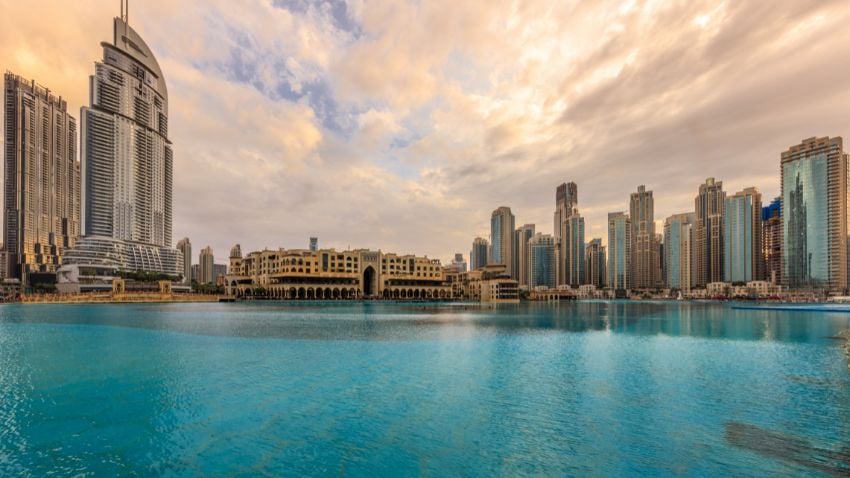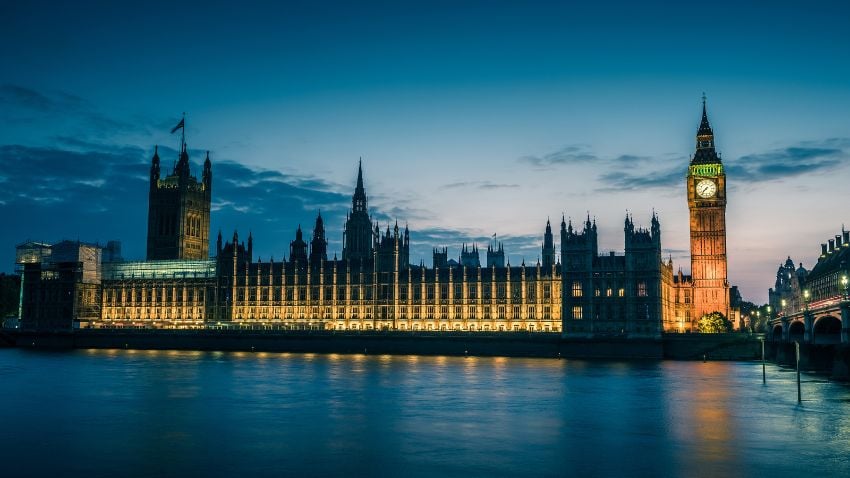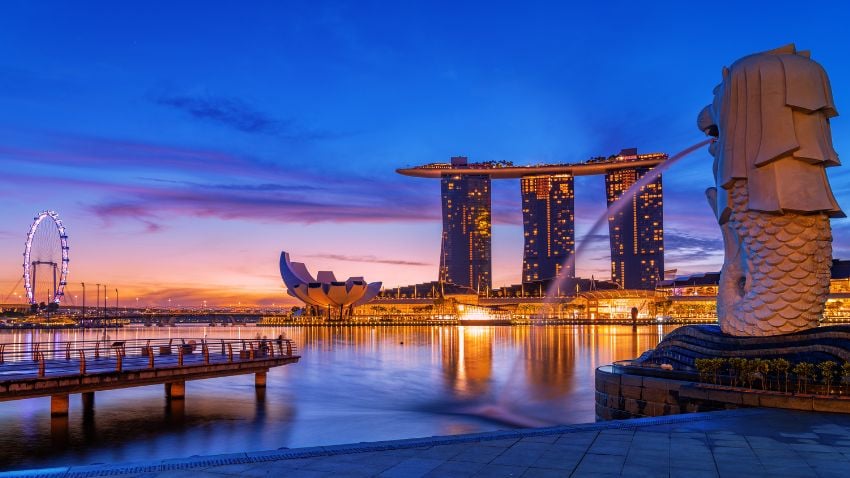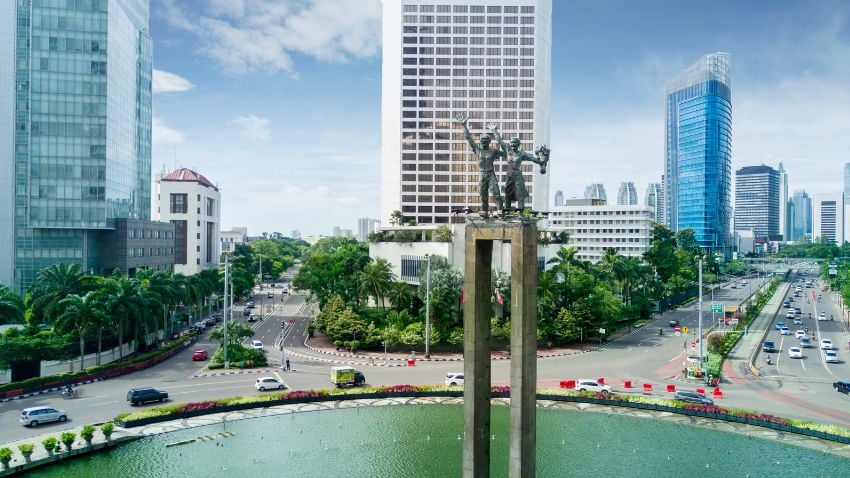Top Things To Do In Panama In 2026
Panama’s geographic size is modest, but its global relevance is not. The country connects two oceans and two continents, operates on a dollarized...

6 min read
If you are planning on securing your new life abroad®, either to enjoy more freedom or to keep your wealth out of the reach of greedy politicians. Chances are you will come across countries like the United Arab Emirates, Qatar, Bahrain, or Saudi Arabia. Also, if you do some research on expats, you see many go to Bali, Indonesia. These are Muslim-majority countries with a law system called Sharia, which means “the correct path” in Arabic. The literal definition would be “vast road leading to an uninterrupted water source.” This refers to some Quranic verses such as 9:72, “God has promised the believers, both men and women, gardens through which running waters flow, therein to abide, and goodly dwellings in gardens of perpetual bliss: but God's goodly acceptance is the greatest [bliss of all] -for this, this is the triumph supreme.”
This article will give you a broad idea of what Sharia Law is, some of its features, countries that practice it, and what life is like in some Sharia law countries.

Petronas Tower, Kuala Lumpur Malaysia
Sharia Law is based on the Quran, which Muslims consider the word of God, and the hadith, which is a compendium of sayings and practices, the sunnah, attributed to the Prophet Mohammed. According to Muslims, the Prophet is the role model not only for Muslims but for humanity as a whole, so Sharia Law is a sort of divine law intended to promote justice and help humans live a righteous life that will guarantee them paradise. Sharia goes beyond the law as it even touches personal practices such as fasting, praying, finance, and charity. However, it is important to distinguish between Islam and Sharia clearly. Islam is a religion and must not be forced upon people (Quran 2:256), whereas Sharia is a legal system that must be enforced. In reality, it does not boil down to a legal system like Civil Law or Common Law; rather, it is intended to be a code of conduct. In reality, no Muslim country in today’s world implements the entirety of Sharia Law. Just consider that there is no unique form of Sharia Law, and Muslims are not obliged to follow any of the various codes.
.jpg?width=850&height=478&name=Copy%20of%20Articles%20(850%20%C3%97%20478%20px).jpg)
Hathseput Mortuary in Egypt
Sharia Law uses five classifications for all human actions. These are obligatory, recommended, permitted, disliked, and forbidden. Sometimes they may be called “the five decisions.”

London bigben at night, UK, United Kingdom
If you are a Western expat, learning a bit about this Law is a good idea to avoid problems, misconceptions, and cultural shocks. However, keep in mind that, for example, in the United Arab Emirates, you can ask for the application of your home country’s law if you are a non-muslim and non-national. In that case, the foreign laws in question must be translated into Arabic, and then, chances are, the original meaning gets lost. Consequently, it is a good idea to research the local laws and respect the country’s culture before moving. Let us discuss some aspects of life and finance you should consider.
The Quran clearly states that the consumption of (recreational) drugs is forbidden, including alcohol. As a result, purchasing, consuming, trafficking, and distributing drugs are not allowed. In the United Arab Emirates, back in the day, residents with special permits could buy alcohol in hotel restaurants and bars. However, these days expats do not need any license to drink in hotels or buy in stores. If you are wondering what Sharia Law has to say about THC (the main ingredient of cannabis, a booming industry these days), it also varies from country to country. For example, it is illegal in Qatar, whereas in the United Arab Emirates, you will not face prison sentences for carrying cannabis-based products.
In some cases, you might have to pay a fine and get the product confiscated. However, the laws against the use of other drugs and drug trafficking itself are strict. The penalties for drug offences reach up to 50,000 Dirhams (over $13,000 USD), and the prison sentences are of at least five years. If you must carry some prescribed medication, ensure you bring proper documentation, such as a translation of the prescription and a letter from your physician. Otherwise, you might be deported and forbidden access to the country. Having said that, if you still want to have a few drinks, you can get alcoholic beverages in some specific stores. Tourists can buy alcohol in particular stores by showing their passports, but they are only allowed to drink in their residences.
Even though Muslims are known for their strict interpretation of scriptures, including premarital intercourse and even physical contact with the opposite sex, in some countries following Sharia Law, it is acceptable to hold your partner’s hand. It is preferable to be modest when dressing because that is another Quranic guideline. Not only do women must wear the hijab, but also men must dress modestly. If you are visiting Dubai or Abu Dhabi, chances are you will enjoy more flexibility and openness, but in other Emirates, the locals are not that accustomed to foreign clothing. However, in countries like Morocco or Indonesia, there is a heavy Western influence, and the local authorities will not call you out for not wearing Islamic garments. Again, please first research the region you will visit to understand the local culture more and avoid misunderstandings. For example, in Indonesia, there is a vast difference between Bali, a world-renowned expat hub, and Aceh, a more strict Sharia Law province.
Again, it varies from place to place. For example, Saudi Arabia is a country with nearly no crime rate and, in fact, is one of the safest countries on Earth. Qatar is also an excellent place for expats and tourists in terms of safety. However, Casablanca, a major Moroccan city, is considered one of the most dangerous cities, and there are reported cases of gangs using knives and swords. Regarding other faiths, countries like United Arab Emirates, Indonesia, and Qatar allow non-Muslims to have their places of worship.
This article is not intended to teach you deeply how Islamic finance works, but here are some important ideas to consider. Firstly, usury (in Arabic riba) is strictly prohibited. For instance, you cannot expect to get your money back plus interest by lending money to someone. Making money with money is also prohibited since money must be employed productively. In other words, money is not considered a commodity. If you want to start a business in a Sharia Law country, you cannot do unlawful (haram) activities such as gambling, speculation, or selling tobacco.
When it comes to taxes, you can find countries like the United Arab Emirates or Qatar, where there is no income tax and countries like Indonesia, where the income tax is up to 35 %. The corporate tax tends to be quite modest in the Muslim Gulf countries, but Qatar charges a 35 % tax on oil and gas corporations. Overall, certain Sharia Law countries are great for freelancing or digital nomads.
Related article: The Basics Of How To Get A Second Passport Or A Second Residency

Merlion Park, Singapore
Below is a list of countries that either apply Sharia Law. Some countries in this list do not have Sharia Law in their legal system, but they offer support for Sharia Law practitioners. You can also check whether they apply traditional, mixed or Muslim-only Sharia by clicking here.
|
Afghanistan |
Algeria |
Bahrain |
|
Bangladesh |
Brunei |
Comoros |
|
Djibouti |
Egypt |
Eritrea |
|
Ethiopia |
Gambia |
Ghana |
|
India |
Iran |
|
|
Iraq |
Israel |
Jordan |
|
Kenya |
Kuwait |
Lebanon |
|
Libya |
Maldives |
|
|
Mali |
Mauritania |
Morocco |
|
Myanmar |
Nigeria |
Oman |
|
Pakistan |
Palestine |
|
|
Saudi Arabia |
||
|
Somalia |
Sri Lanka |
Sudan |
|
Syria |
Tanzania |
|
|
Uganda |
United Kingdom |
|
|
Yemen |

Welcome Monument in Jakarta, Indonesia
If you are not Muslim but plan on moving to a Sharia Law jurisdiction, it is a good policy to study and understand it along with its cultural norms and traditions. As I mentioned, no country in the world applies the entirety of Sharia Law. For example, you could set up a trust in Qatar or find some Civil laws in Morocco. Indeed, in many cases, the history of colonization plays a relevant role in each country’s regulations.
Sharia Laws tend to be strict with severe punishments, and it does sometimes happen to westerners visiting Sharia Law countries who accidentally do something that can land them in jail or worse. You can go as far as saying that Sharia Law is seen as “God’s law for humans,” so it would be an act of respect to learn about it before visiting countries that practice Sharia Law. As customs and personal life can be affected by them, sometimes some habits we have aren’t legal in other countries.
If you want the best intel from the expat world, including profitable offshore opportunities, little-known tax-saving strategies, and hard-won insights on immigration, passports, and Plan-B residencies, all delivered to your inbox every single week, then join our daily correspondence, EMS Pulse®. Currently enjoyed by over 84,000 expats and expat-hopefuls worldwide. Fill in the form below to join our newsletter free:

Written by Mikkel Thorup
Mikkel Thorup is the world’s most sought-after expat consultant. He focuses on helping high-net-worth private clients to legally mitigate tax liabilities, obtain a second residency and citizenship, and assemble a portfolio of foreign investments including international real estate, timber plantations, agricultural land and other hard-money tangible assets. Mikkel is the Founder and CEO at Expat Money®, a private consulting firm started in 2017. He hosts the popular weekly podcast, the Expat Money Show, and wrote the definitive #1-Best Selling book Expat Secrets - How To Pay Zero Taxes, Live Overseas And Make Giant Piles Of Money, and his second book: Expats Guide On Moving To Mexico.

Panama’s geographic size is modest, but its global relevance is not. The country connects two oceans and two continents, operates on a dollarized...

Honduras’ newly elected president, Nasry Asfura of the conservative National Party, was sworn in on January 27, 2026. The election, held on November...

For a growing number of Americans, cost-of-living math no longer works. Housing feels harder to reach, everyday costs keep climbing, and long-term...